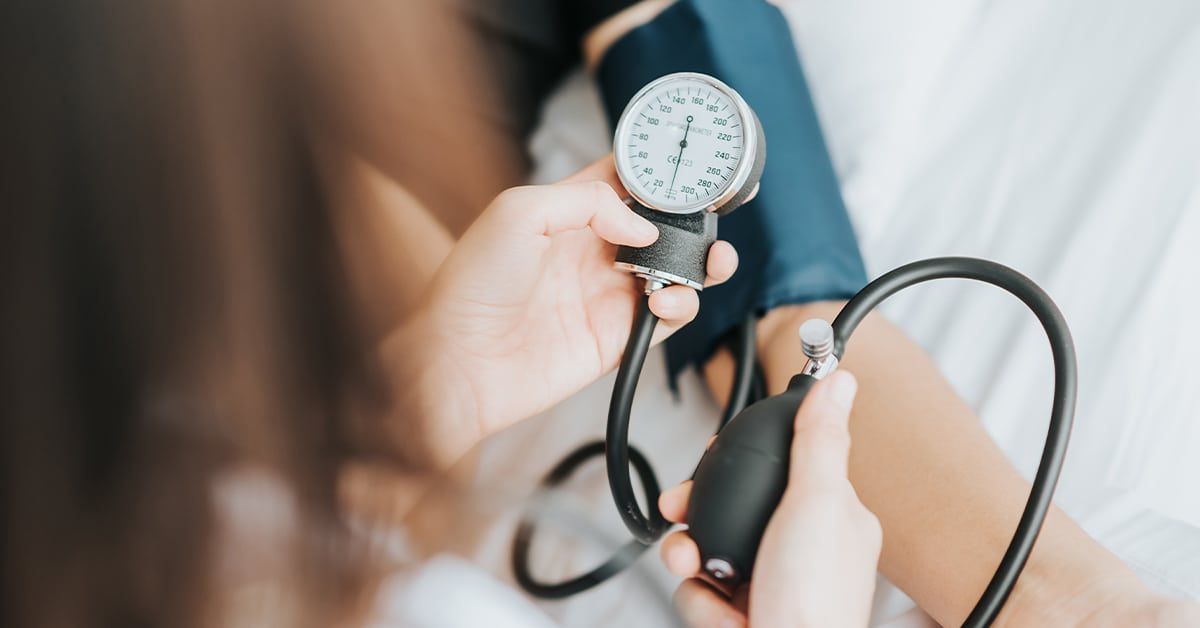
Do you have high blood pressure?
If you do not know the answer to this question, there is a roughly 50/50 chance that you do have high blood pressure (HPB). That’s because the American Heart Association estimates that nearly half of all adult Americans have HPB, with many not even being aware of it. And those living with HBP—knowingly or not—are compromising their overall health and putting themselves at a much greater risk of developing a variety of diseases and adverse health conditions, including:
- Peripheral artery disease
- Angina
- Heart attack
- Stroke
- Heart failure
- Kidney disease/failure
- Metabolic syndrome
- Vision loss
- Dementia
- Sexual dysfunction
Internal medicine physician Dr. Diane Brzezinski, D.O. understands the importance of keeping blood pressure under control. Dr. B, as she’s known by her patients, addresses HBP as part of the greater holistic approach to treatment offered to all of her Naples, Florida-area patients. Read on to learn more about HBP and how lifestyle changes can help you better manage your blood pressure.
The HBP Basics
Also known as hypertension, HBP tends to develop gradually with no specific underlying causes over time in most adults. Doctors diagnose this form of HBP as primary hypertension. Secondary hypertension refers to HBP that develops quickly as a result of an underlying condition or in reaction to a medication. Such conditions include:
- Kidney disease
- Adrenal gland tumors
- Obstructive sleep apnea
- Thyroid problems
- Congenital defects in the blood vessels
- Illegal drugs, such as amphetamines and cocaine
- Certain medications, including birth control pills, decongestants, pain relievers, and some prescription drugs
Understanding Blood Pressure Numbers
You are undoubtedly familiar with how your blood pressure is checked and have experienced the pressure on your arm delivered by that inflatable cuff. But what do those two numbers that represent your reading mean?
Blood pressure numbers measure two different pressure types, with the first number representing systolic pressure, which is the pressure produced when your heart beats. The second number measures the pressure between heartbeats and is known as diastolic pressure. Blood pressure readings are given in millimeters of mercury (mm Hg) and a normal reading is anything less than 120/80 mm Hg. Readings of concern include:
- 120-129/80 or below—“elevated,” which suggests that the patient is likely to develop HBP unless efforts are made to control it.
- 130-139/80-90—stage one hypertension, which can be treated with lifestyle changes and perhaps medications depending upon other health factors.
- 140-or higher/90 or higher—stage two hypertension, which can be treated with a combination of lifestyle changes and blood pressure medications.
- Higher than 180/higher than 120—hypertensive crisis, which suggests the need for immediate medical attention, especially if experiencing other symptoms, such as shortness of breath, back pain, chest pain, change in vision, numbness, or difficulty speaking.
Controlling HBP
No matter what the stage, managing HBP through lifestyle changes is highly recommended due to its overall positive impact on health. Lifestyle changes that help reduce blood pressure include:
- Consistently eating a well-balanced diet
- Avoiding salt and salty foods
- Quit smoking
- Get plenty of regular physical activity
- Maintain a healthy weight or lose weight if overweight
- Limit alcohol consumption
Of course, some HBP cases also require medications to help get them under control. Doctors have a wide variety of medications to control HPB, with treatment options dictated by the patient’s age, health profile, and other factors. Doctors will often prescribe two or more blood pressure drugs and sometimes have to determine the right drugs for specific patients using a trial and error approach. Among medications used are:
- Diuretics—help rid the body of sodium and excess water.
- Calcium channel blockers—help relax blood vessel-related muscles.
- Angiotensin-converting enzyme inhibitors—relax blood vessels.
- Angiotensin II receptor blockers—hinder the formation of a natural chemical that narrows blood vessels.
- Beta-blockers—reduce heart workload and help widen blood vessels.
Consult with Dr. B to Learn More
With its focus on whole health rather than a condition-specific approach, internal medicine practices offer a comprehensive plan for managing HBP. If you would like to learn more about how to manage your HPB, consult with Dr. B. You can contact Dr. B’s Naples-based internal medicine practice today through our easy online form, or by calling (239) 261-9990.




